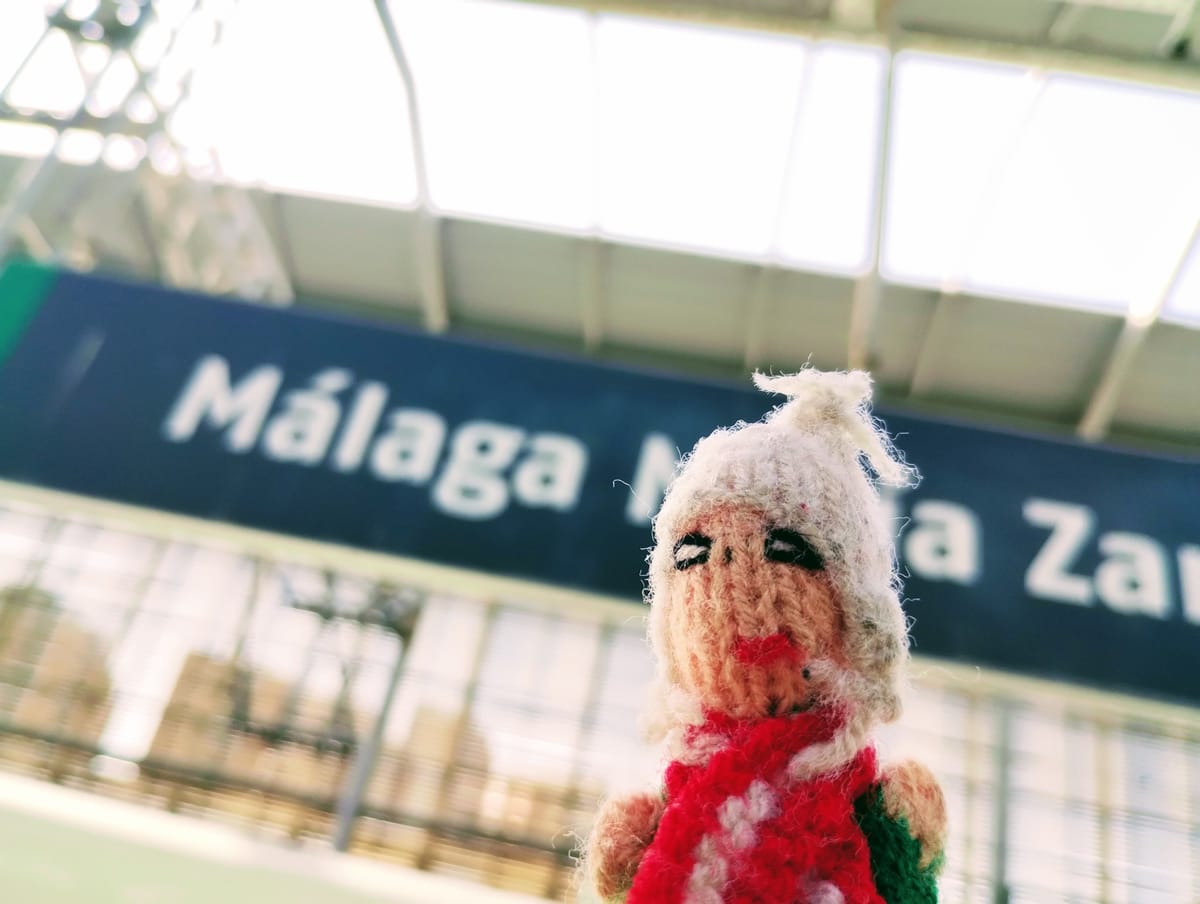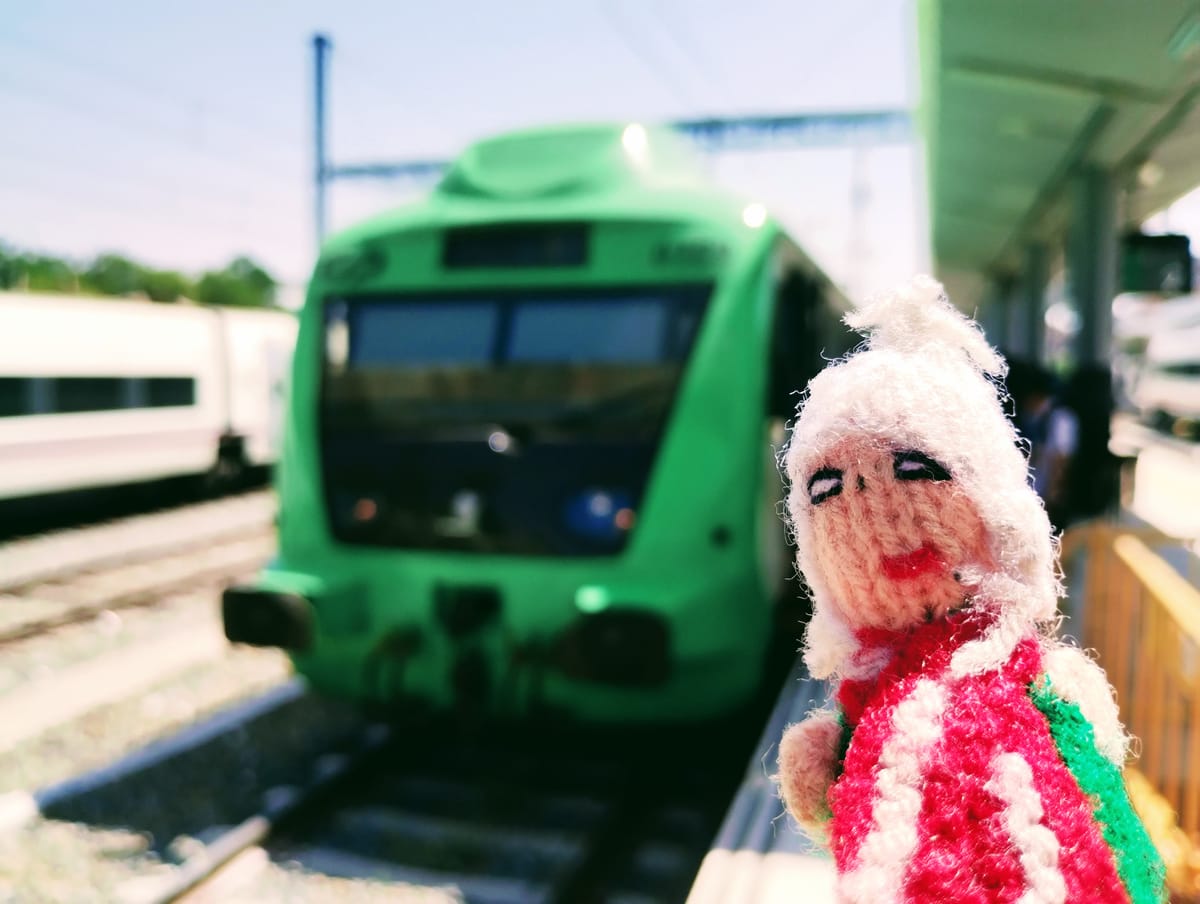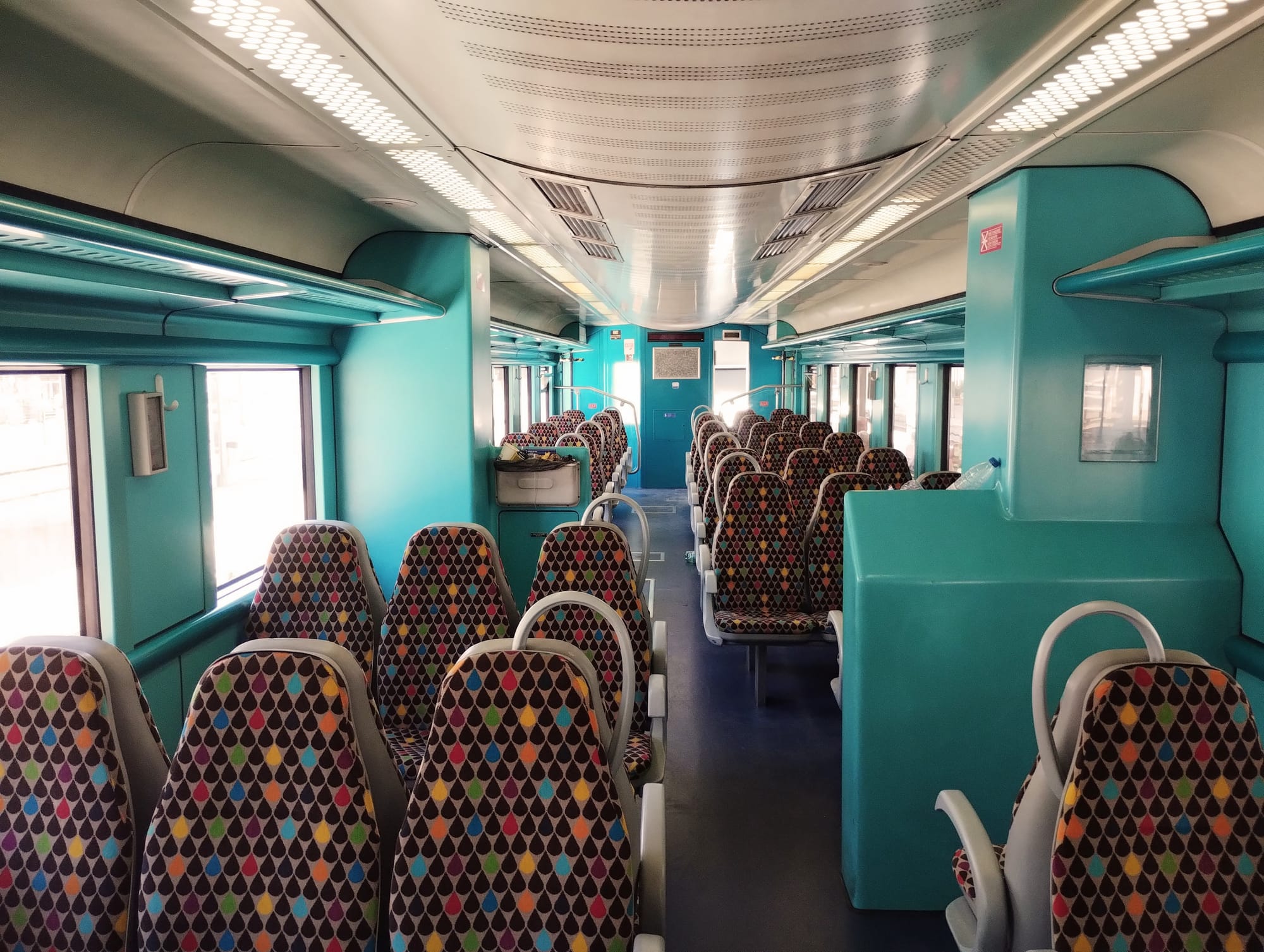Iberian adventure: Doing the sums
Nobody's interested.

This was, technically, a work trip to Spain, for which I was able to justify a four day Interrail One Country pass, at the normal non-discounted price, paid for by work.
Of course I could have flown, but the options were at inconvenient times of day from inconveniently-placed airports. Once travel to and from airports was taken into account, I really couldn't be bothered.
The train it was.
A four-day Interrail One Country pass for Spain in first class (for a diva puppet) costs 284€, and I carelessly still have one day left. A three day Interrail pass would have cost 245€.
Spain does not play well with Interrail and insists on paid seat reservations for each journey. Renfe's own Spain Pass includes reservation fees, but works per train rather than per day. The equivalent Renfe pass for this trip would have required six separate journeys and cost 415€.
I get the impression that much like the SNCF, the Renfe secretly loathe their passengers and would much rather we walk than sully their precious trains with our bottoms of the great unwashed. At least that's the vibe I get from the user experience of their respective web sites.
tl;dr
Really, with planning there's not much difference between buying point-to-point tickets or using a pass to travel around Spain. It all depends how organised you are.

The Renfe site listed a through ticket from Donostia to Málaga with a change in Madrid for 128€ in first class. I used HappyRail to make my seat reservations – 26€ in total, though it would have been cheaper had I not indulged myself by choosing seats on the clicky map.
Tip: in first class, odd-numbered seats – I had 13A and 5A – seem to align best with windows.
I'd really hoped to try Iryo's Infinita Bistró service between Madrid and Málaga, but as they're not yet in the Interrail network, the decision to use a pass precluded this. Next time.
The journey to Madrid mirrored the the journey to Tangier, although engineering works at San Sebastián/Donostia station meant the first was by coach to Tolosa where our train was waiting to swoosh us south. A Cercanías train between Madrid Atocha and Chamartín was included with my long-distance seat reservation.
The onward journey from Madrid to Málaga – whichever train you take – is another three hours of spectacular scenery. Also, Renfe does air conditioning very well: the information screen showed 42°C outside.

This was pretty, and Badajoz is a lovely place to get lost for a day.
The morning train was on a lurid purple Avlo train, and my heart sank when I saw it on the platform; Avlo is Renfe's low-cost no frills service. But towards the pointy end salvation was to be found in the two first class coaches with big leather seats and a dining car.
After a change of train in Puertollano, I boarded a one-class Media Distancia train for the glorious journey to Badajoz. It was perfectly comfortable. There was no dining car, just a vending machine, but I found a supermarket within walking distance of the station.
Renfe wanted 108€ for the whole. My seat reservations cost just 19,50€. The second train was quiet enough for me to move around. Mérida looks nice from the train.

There are currently only two ways to cross from Spain to Portugal by train: Badajoz-Entroncamento, and Porto-Vigo. Each has two crossings per day.
The train between Badajoz and Entroncamento was three hours of joyful, rattly, diesel bus-on-rails with a turquoise interior and gaudy 1980s moquette. I don't think we ever exceeded 90kph and I did a proper squee when I was allowed into the driver's cab. Probably my favourite journey of the whole trip. Entroncamento literally means junction, if you're interested, because that's exactly what it is.
The onward journey on the Intercity train was very comfortable, but I couldn't get anything from the dining car as the card reader wasn't working.
I bought this directly on the Comboios de Portugal web site after a delightful above-and-beyond email exchange with customer service about seat/window alignment. Total: 24,80€. The best seats in first on the Intercity seem to be those at each corner of the carriage (11, 15, 52, 56) and the odd-numbered seats. Huge, but filthy, tinted windows.
The 2€ Andante card from a machine in Campanhã came pre-loaded with the one journey needed for the commuter train to Porto São Bento, an urban railway station that is a genuine delight to behold.

This is the other cross-border route.
A rattly commuter train took us from Porto Campanhã to Viana do Castelo where we changed onto an old CP Intercity train for the remainder of the journey north. It was a relatively pretty journey, with grey early-morning vibes. Arrival at Vigo-Guixar is an interesting experience as you roll through the working port, shipping containers and all.
The Renfe site claimed this journey cost 10,55€ but stubbornly refused to charge anything less than 16,25€, no matter how many times I tried or things I clicked.

This was not the journey I'd hoped to take.
My original plan, knowing I had a four-day pass, was to head out of Campanhã to Vigo and catch the 13:37 AVE onward to somewhere else, where I'd stay overnight before using my final day to get back to Donostia. But: Renfe happened.
I over-complicated things buying two sets of seat reservations: 17€ for Vigo-León in first, 6,50€ for León-Vitoria in second. Luckily, seats became free and the lovely train manager let me stay in first all the way. The reservation for the onward train that was a replacement bus service to Donostia was also 6,50€. It was faster than the train.
Trying to buy this as a through ticket makes the Renfe site go wobbly. Right now, Vigo-Vitoria is showing as 89€ in first, with the onward Donostia connection showing as 12,65€ in not-first.
The early-morning journey from Vigo to Vitoria-Gasteiz offers some jaw-dropping views. Once again, odd-numbered seats are the winners. The train changes direction twice, and the right side of the train seems to present the prettiest opportunities for the habitual window-lickers among us.
Crunching numbers.
These figures do not take into account the cost of trains in France to get me to and from Hendaye, or the Euskotren, which doesn't like my Wise card.
- Cost of four-day first-class Interrail Spain pass: 284€
- Reservation fees for trains in Spain: 75,50€
- Portugal-Spain crossings: 41,05€
- Total costs using Interrail pass: €400,55
- Estimated cost without pass: 378,70€
It was marginally more expensive to use the Interrail pass than to buy point-to-point tickets, but I’d have lost flexibility. Had I used a three-day pass and not fudged the final run to Donostia, it likely would’ve been cheaper.
The Renfe Spain Pass would have cost slightly more overall.
Renfe staff were only interested in whether I had a seat reservation – nobody ever actually asked to see my Interrail pass. I’ve still got one travel day left, valid until 16th September. Thinking required.
Do it. You know you want to.





